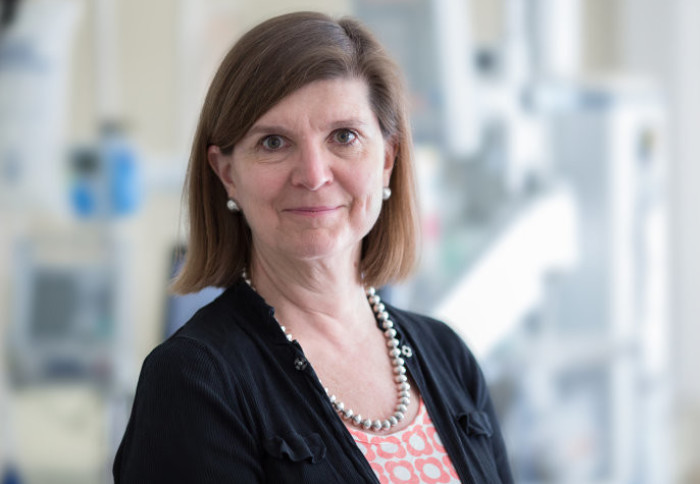Imperial College infectious diseases expert warns about drug resistance dangers

Professor Alison Holmes, Professor of Infectious Diseases, Imperial College London
Imperial academic, Professor Alison Holmes, Professor of Infectious Diseases, appeared in front of the Science and Technology Committee last week.
The House of Commons Science and Technology Committee, chaired by Greg Clark MP, called a one-off hearing to consider the threat posed by superbugs and antimicrobial resistance (AMR) and their potential to become a pandemic. The inquiry had been called ahead of the World Health Organization’s emergency committee meeting on 23 June to consider whether the spread of monkeypox should be declared a public health emergency. Professor Holmes appeared in the first panel of the day alongside Lord O’Neill of Gatley, Chair of the Review on Antimicrobial Resistance (2014-2016). In March of this year, Lord O’Neill came to Imperial College to officially open the CAMO facility, highlighting the importance of its interdisciplinary research in the battle against AMR.
Threat of AMR
I stress the issue of being able to deliver surgery globally. When you think about how many infections arise because of surgery, particularly in low-resource settings, the impact of AMR is absolutely overwhelming. Professor Alison Holmes Professor of Infectious Diseases
Professor Holmes described AMR as a ‘massive’ threat to individual health, societal health and to our ability to safely deliver healthcare and innovations in healthcare. On future threats, Professor Holmes stated that AMR will threaten and undermine our ability to deliver safe surgery, particularly in low resource settings. It would also impact on our ability to deliver cancer treatments and simple clinical therapies. Picking up on a description of AMR as a ‘silent pandemic’, Professor Holmes stated that there was “nothing silent about it”, pointing to research from the O’Neill Review predicting 10m deaths per year globally by 2050. She highlighted more recent research that puts the estimate much higher.
Impact of COVID
Lord O’Neill said that the recent experience of COVID had demonstrated the impact of global healthcare threats. Calling to not “let a crisis go to waste”, he hoped that COVID provided a window for policymakers to invest in healthcare and tackling AMR. He predicted that health and economic damage from AMR was likely to be much worse than COVID unless action was taken soon. He said that the response to his 2016 report had been positive, particularly the UK’s substantial reduction of antibiotic use in agriculture but noted that existing funding commitments were not adequate.
Professor Holmes continued that COVID had helped improve some areas of public understanding, such as the role of healthcare settings in disease transmission. Many drug resistant infections arise in healthcare settings, which also have the greatest concentrated use of antimicrobials. It is estimated that 1 in 5 antibiotics used in healthcare settings are to treat infections picked up there. A reduction in antibiotic use in general is required, but Professor Holmes highlighted the need to reduce the number of infections picked up in hospitals to cut antibiotic use in response.
Raising Awareness
Professor Holmes said that increased political engagement and societal awareness is imperative. She described the need for the public to capture an understanding of AMR like they have with climate change, and to see it about saving healthcare for the world.
Lord O’Neill commented that, in retrospect, he would have added a recommendation to his report for AMR to be listed as a cause of death on death certificates due to the role it would have in raising awareness. He said that the growth of new university research centres had been positive, especially in the UK, and pointed to the work of Imperial’s Centres NIHR in AMR and CAMO as examples.
What Next?
Lord O’Neill suggested that to drive policymaking further on AMR and healthcare in general, the International Monetary Fund should include it in their investment reports to give a clear economic reason for greater government investment in healthcare.
Professor Holmes called for better global systems of surveillance and
We can get much more bang for our buck in how we use our existing agents with minimal application of technology and much better data Professor Alison Holmes Professor of Infectious Diseases
integration of information. She stated that we need better, more integrated data on what is developing across human, animal, livestock, and environmental health. Lord O’Neill followed up with concerns that the UK would be vulnerable to a reduction in standards in future trade deals, particularly regarding antibiotic use in agriculture.
He was alarmed by the UK’s failure to embed state of the art technology in healthcare systems and that he felt Ministers had failed to grasp the scale of technology and the positive impact it could have on tackling AMR.
Drawing on work with the Academy of Medical Sciences, Professor Holmes continued that we should take advantage of people becoming accustomed to regular testing during COVID and utilise it to a greater extent in hospitals. She also reiterated that better use should be made of existing agents and treatment, rather than focusing solely on developing new ones. Lord O’Neill concluded by calling for more investment in vaccine development to reduce future need for antibiotic use.
Article text (excluding photos or graphics) © Imperial College London.
Photos and graphics subject to third party copyright used with permission or © Imperial College London.
Reporter
James Heyburn
Communications Division
Pete Ford
College Headquarters